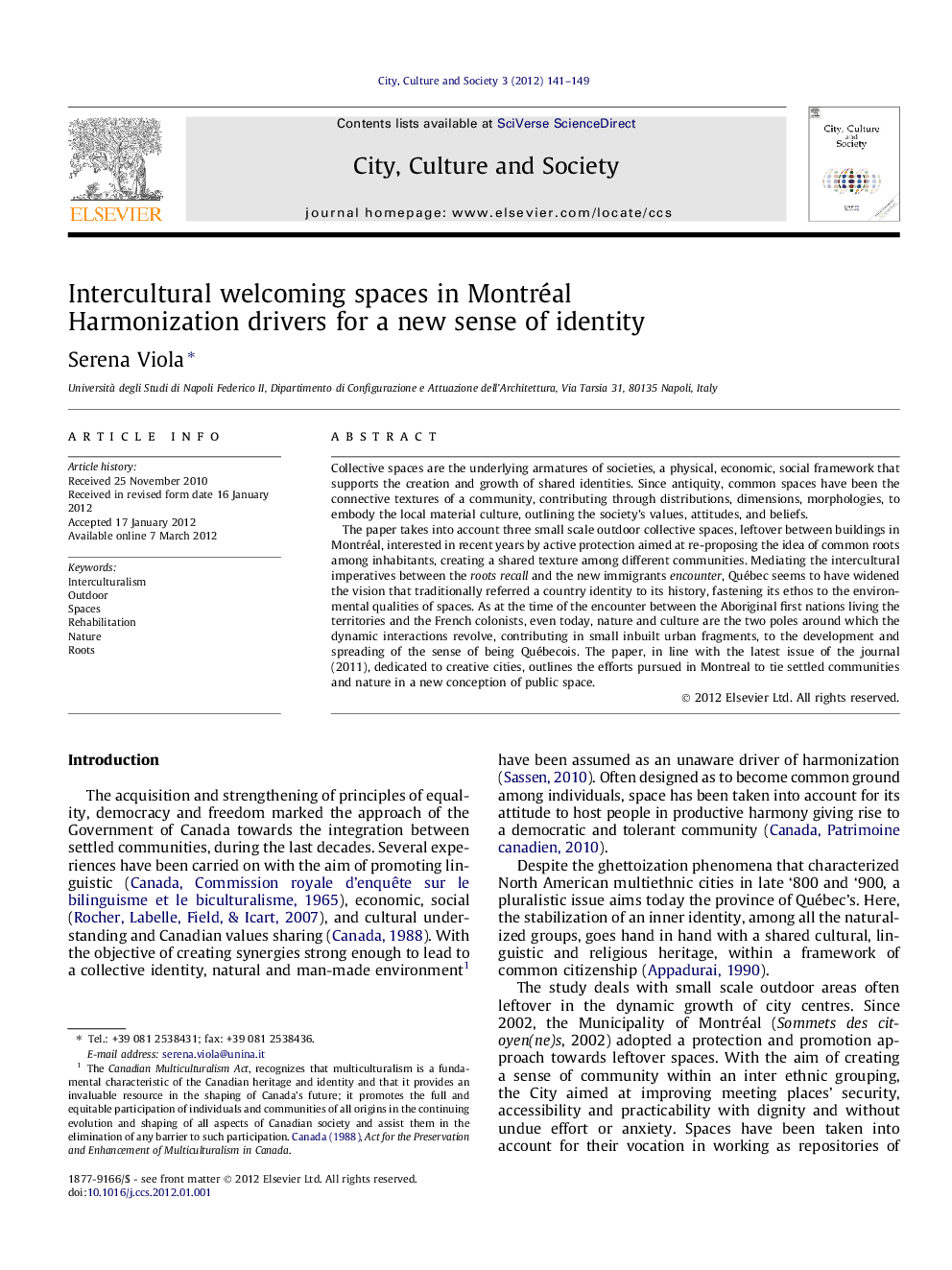| Article ID | Journal | Published Year | Pages | File Type |
|---|---|---|---|---|
| 5048407 | City, Culture and Society | 2012 | 9 Pages |
Collective spaces are the underlying armatures of societies, a physical, economic, social framework that supports the creation and growth of shared identities. Since antiquity, common spaces have been the connective textures of a community, contributing through distributions, dimensions, morphologies, to embody the local material culture, outlining the society's values, attitudes, and beliefs.The paper takes into account three small scale outdoor collective spaces, leftover between buildings in Montréal, interested in recent years by active protection aimed at re-proposing the idea of common roots among inhabitants, creating a shared texture among different communities. Mediating the intercultural imperatives between the roots recall and the new immigrants encounter, Québec seems to have widened the vision that traditionally referred a country identity to its history, fastening its ethos to the environmental qualities of spaces. As at the time of the encounter between the Aboriginal first nations living the territories and the French colonists, even today, nature and culture are the two poles around which the dynamic interactions revolve, contributing in small inbuilt urban fragments, to the development and spreading of the sense of being Québecois. The paper, in line with the latest issue of the journal (2011), dedicated to creative cities, outlines the efforts pursued in Montreal to tie settled communities and nature in a new conception of public space.
⺠Montreal widens the vision that refers a country identity to its history and traditions. ⺠The interstitial spaces of the city, engine of a new sustainability. ⺠Documents testify that the preponderance of nature can contrast intercultural barriers. ⺠The texture of connective spaces is a common denominator among social groups. ⺠Case studies suggest the possibility to building social networks inside dominant culture.
